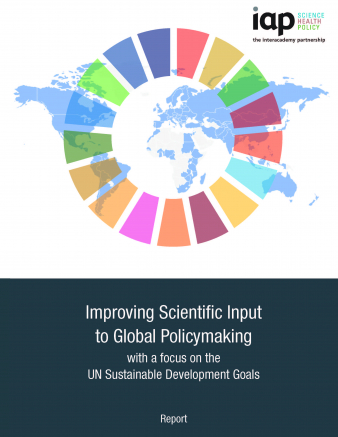Realisation of the UN’s Agenda 2030 - the global blueprint for the future well-being of the planet and its people - requires transformative and urgent change in the world’s currently unsustainable practices. The greatest minds, resources, business models and innovations from all sectors and disciplines and across generations must be mobilised to effect this transformation together.
IAP's project on Improving Scientific Input to Global Policymaking with a focus on the UN Sustainable Development Goals (SDGs), has published this final report designed to mobilise its members and the growing number of young academies around the world to play their part more effectively. Representing some of the best scientific minds in their countries, national merit-based academies are an important source of knowledge and have an opportunity to act now to effect positive change. This project has explored some of the pathways for feeding science into the SDGs and ways in which IAP and its members can contribute more effectively at global, regional and national levels.
Released at the UN STI Multi-stakeholder Forum (14-15 May 2019, New York City), an annual UN meeting to discuss key developments in STI for the SDGs, the report urges all stakeholders to engage openly and inclusively to ensure that evidence informs policy design, implementation and review. The report sets out concrete, actionable recommendations for the UN and its agencies, merit-based academies and the wider science community. It also includes a checklist, “How you can support the implementation of the SDGs” to help individual scientists support and engage with the process.
View the press release here.

